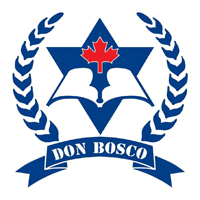Overview
MBA at Greenfield National College, Bafal, Kathmandu
MBA at Greenfield National College (GNC), Bafal, Kathmandu runs under Rajarshi Janak University (RJU). The program serves graduates from any recognized discipline who want a two-year management degree that links advanced coursework with research methods, a capstone or consulting project, seminars, and a supervised internship.
Your path follows RJU regulations on credit allocation, assessment, and timeline, and campus notices guide batch-wise admissions.
Quick Facts
-
Affiliation: Rajarshi Janak University (RJU)
-
Duration: Two academic years, four semesters
-
Learning Mode: Core and elective courses, seminars, research methods, project/capstone, and internship
-
Assessment: Internal marks, end-semester examinations, project report, presentation, and viva
-
Admission: Entrance process and interview as notified; document verification and orientation
Curriculum Structure
Semester-wise planning balances core management and elective depth. Core modules include managerial economics, financial reporting and analysis, corporate finance, marketing management, organizational behavior, operations management, business analytics fundamentals, research methodology, and business law & ethics.
Electives reflect local demand: banking and insurance, investment and portfolio, marketing communication, consumer behavior, HR development, strategic HRM, entrepreneurship and small business, and project management. A seminar series builds reading discipline and discussion skills. The research methods track moves from proposal to data plan, instrument design, and final report milestones.
A capstone/consulting project addresses a real or simulated organizational problem. Students prepare a scope note, collect data ethically, analyze results, and present findings under faculty supervision. The internship places students in banks, trading firms, service companies, or local enterprises, concluding with an evaluated report and viva.
Learning Experience and Assessment
Faculty use short lectures, guided cases, spreadsheet sessions, and presentations. Internal marks depend on class tests, assignments, case write-ups, and seminar participation. External exams evaluate theory and application. The project and internship follow a timeline with proposal, mid-term review, final report, and defense. Students keep a file with assumptions, data tables, references, and appendices to support transparency.
Admission Requirements
-
Eligibility: Bachelor’s degree in any discipline from a recognized university
-
Minimums: Session-wise benchmark as per RJU rules and campus notice
-
Selection: Entrance test, interview, and document verification
-
Documents: Academic transcripts, character certificate, admit/score sheet, equivalence (if needed), ID copies, photos, and CV
Career Outcomes
Graduates move into roles such as management trainee, business analyst (entry), finance or marketing associate, HR officer, operations supervisor, or banking officer. The project and internship create a concise portfolio for employers. Students targeting research or teaching roles can extend the research component through additional reading and supervised studies.
Scholarships and Student Support
-
Merit-Linked: Campus notices may recognize exceptional entrance scores or semester CGPA
-
Equity-Sensitive: Categories follow campus and national rules where applicable
-
Application: Form, verification, and award notice within the intake window
Study and Preparation Tips
-
Set a calendar for seminar readings and case deadlines.
-
Maintain a clean spreadsheet model for finance and operations exercises.
-
Practice short executive summaries to strengthen clarity in reports.
-
Request interim feedback on the project before final submission.
FAQ
Is the MBA open to all bachelor backgrounds?
Yes. Graduates from any recognized discipline may apply, subject to session-wise criteria.
Does the MBA include a capstone and internship?
Yes. Both components are evaluated and carry academic weight.
How are electives chosen?
Electives are offered per the university scheme and campus planning for each batch.
What should I prepare before the first semester?
Refresh accounting basics, statistics, and Excel; draft a one-page statement of study goals.























